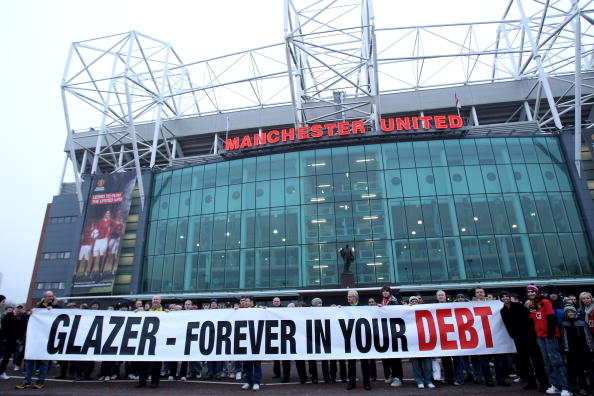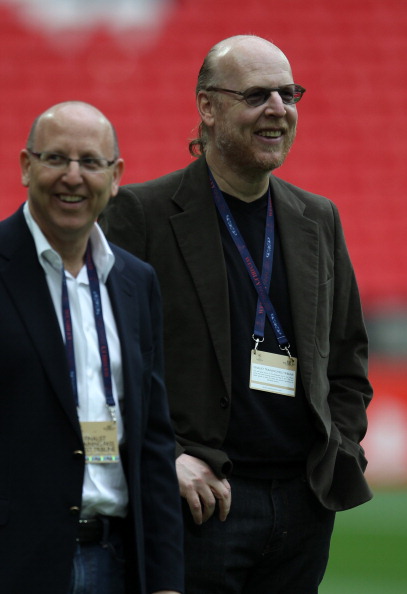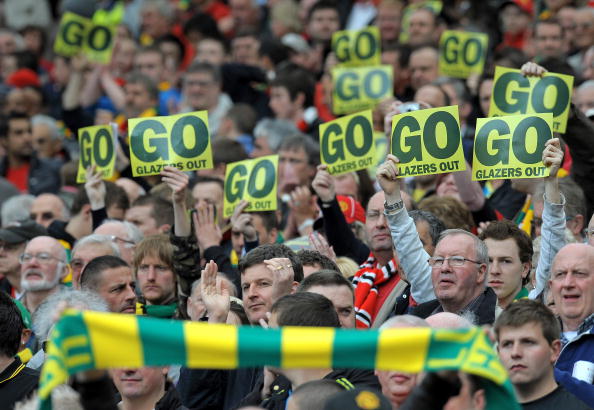After months of speculation, Manchester United has confirmed that it will make 25 to 30 per cent of the club’s shares available to investors in a partial flotation later this year on the Singapore Stock Exchange.
Once again it raises searching questions about the club’s owners, the Glazer family, who burdened the club with significant debts when taking it over in 2005, and as a result are reviled by the United supporters.
The Manchester United Supporters’ Trust chief executive Duncan Drasdo has already voiced his suspicion and reservations about the flotation.
“The share sale will be in the Glazers’ interests – to pay down their debt – not the club’s,” Drasdo said.
“The danger is that a partial flotation will provide a poisoned pill to any such progressive potential owners.
“And by reducing the Glazers’ personal debt we will continue to be saddled with these absentee landlords.”
It is the personal debt which may trouble United supporters most of all. Last June, it was revealed that the Glazer family had some £1.1 billion ($1.8 billion/€1.3 billion) in personal debts. With Manchester United taking up almost two thirds of that debt, the rest came from borrowings made against shopping malls which are part of their First Allied holding group.
Their excessive personal debts seemed to essentially be the result of bad timing. They remortgaged 25 of their shopping malls when buying United, the majority of which were with the investment bank Lehman Brothers which collapsed in September 2008 as toxic sub-prime mortgages brought the world’s economy to its knees. Since then, they have been forced to borrow against those shopping malls to preserve their assets – four of which collapsed during the credit crunch – which has pushed their personal debts up, rather than enabling them to pay off the loans owed from the purchase of United.

Luckily for the Glazers, they had bought a club managed by probably the best coach in English football history, Sir Alex Ferguson, who has continued to achieve success in spite of the clear financial constraints he has worked with. It should also be noted that the football club, rather than the holding company which is saddled with the Glazers’ debt, remains exceptionally profitable thanks to a combination of the club’s popularity and success.
Yet in spite of being saddled with this huge personal debt, last November the Glazers paid off more than £200 million ($331 million/€230 million) worth of PIK loans that they took out in 2005 when acquiring the club. It has been suggested that they paid this off through taking out a new loan, and it would make sense if that was the case given the sizeable 16.25 per cent interest rate they were paying on the PIKs.
Given the background of the mounting debts and secrecy of the Glazer family, the decision this week to float on the Singapore stock market has provoked numerous questions. Why not the London Stock Exchange, the biggest in Europe? Or Hong Kong, where it had been speculated that United would be floated earlier this year?
 For one thing, Manchester United have a significant following in the Far East, but this doesn’t explain why they would go for Singapore over Hong Kong. But as financial analysts have pointed out, the regulations governing flotation in Singapore are far less stringent, and this would fit with the Glazers’ secretive character.
For one thing, Manchester United have a significant following in the Far East, but this doesn’t explain why they would go for Singapore over Hong Kong. But as financial analysts have pointed out, the regulations governing flotation in Singapore are far less stringent, and this would fit with the Glazers’ secretive character.
It seems that they want to pay off some of the club’s £500 million ($829 million/€575 million) debt with a portion of the money raised from the flotation, which could be as much as £600 million ($994 million/€690 million).
There is a clear logic to reducing the debt now. Their more wealthy rivals, namely Manchester City and Chelsea, despite the threat of being kicked out of European competitions if they don’t comply with UEFA financial fair play rules, appear to have unlimited chequebooks. It seems a ridiculous suggestion that United need to keep pace with the duo, given that at the time of writing Manchester United would appear to be far stronger than any of their domestic rivals, but there is a logic.
City have spent heavily this summer. Stevan Savic, Sergio Aguero, Gael Clichy and the impending transfer of Samir Nasri will take their net outlay to approximately £75 million ($124 million/€86 million). Chelsea spent £75 million ($124 million /€86 million) in January alone on Fernando Torres and David Luiz, and have this summer already forked out £20 million ($33 million/€23 million) for Belgian teenager Romelu Lukaku, and a further £10 million ($17 million/€12 million) on Thibault Courtois and Oriol Romeu. And they could still sign Luka Modric for near to £35 million ($58 million/€40 million).
Further down the league, fierce rivals Liverpool have spent in excess of £50 million ($83 million/€57 million) and if Arsenal had any manager who wasn’t called Arsene Wenger they’d have probably spent a similar amount. Despite United’s dominance, they are reliant on the brilliance of Ferguson to keep them at the top, rather than financial supremacy. And with the Scot nearing his retirement, keeping pace financially with their rivals must be the prime concern for the Glazers, who know they can’t rely on him forever. Given that interest payments are near to £50 million ($83 million/€57 million) annually, the boost to the transfer coffers of a reduction of the club’s debt would be substantial.
 But then there is the remainder of any money raised from a flotation. While some of the personal debt placed on United will be reduced, supporters will be concerned, and financial analysts intrigued as to where the remainder of the profits they will make from essentially selling their shares will go.
But then there is the remainder of any money raised from a flotation. While some of the personal debt placed on United will be reduced, supporters will be concerned, and financial analysts intrigued as to where the remainder of the profits they will make from essentially selling their shares will go.
Will it help pay off some of the debts they have on their other business interests, essentially ensuring more money in their own back pockets?
Maybe it is just smart timing with the increasing possibility of a double dip recession returning. The only thing that is certain is that the Glazers will provoke more questions than they answer.
David Gold is a reporter for insideworldfootball
